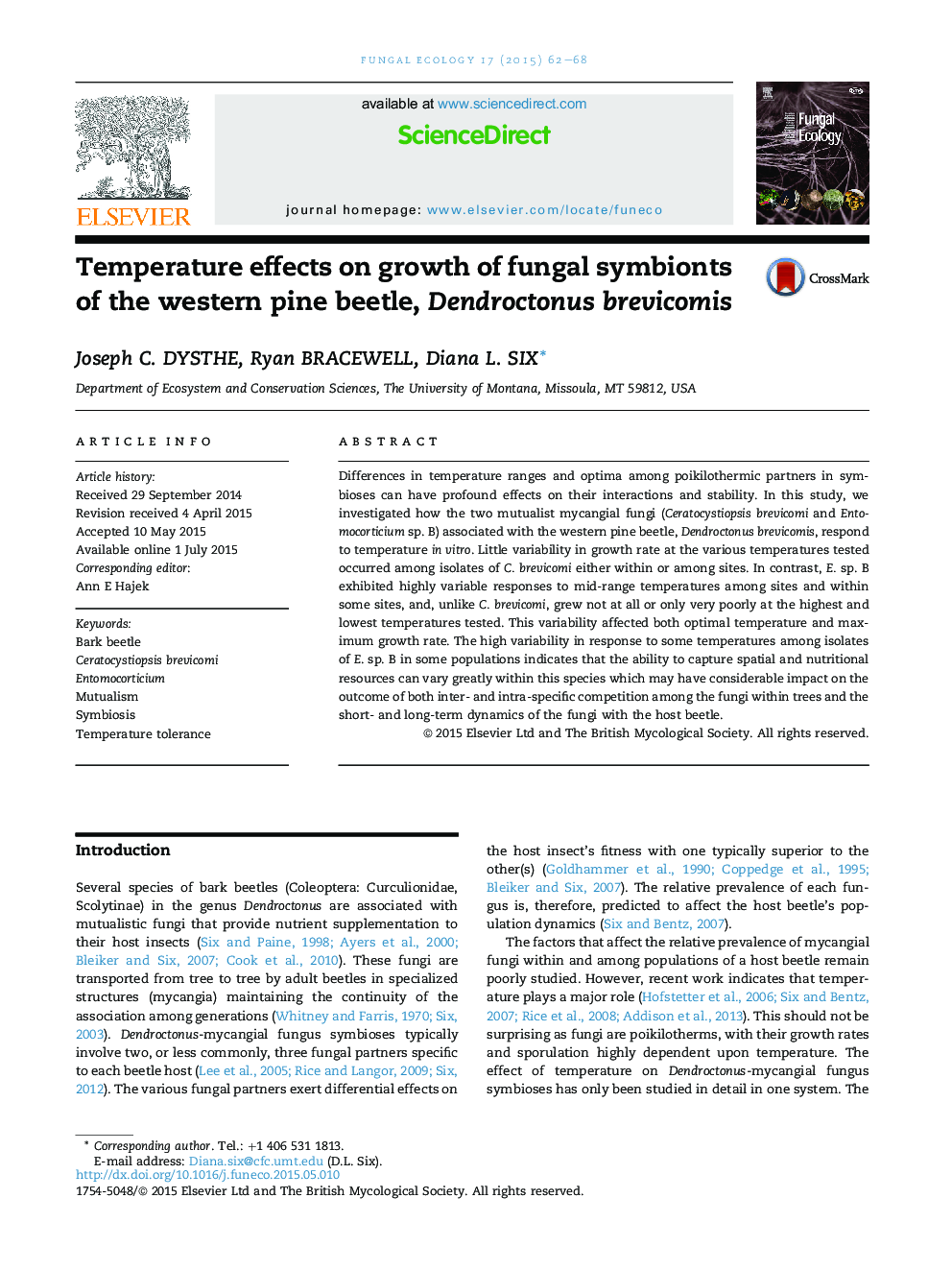| Article ID | Journal | Published Year | Pages | File Type |
|---|---|---|---|---|
| 2053788 | Fungal Ecology | 2015 | 7 Pages |
Differences in temperature ranges and optima among poikilothermic partners in symbioses can have profound effects on their interactions and stability. In this study, we investigated how the two mutualist mycangial fungi (Ceratocystiopsis brevicomi and Entomocorticium sp. B) associated with the western pine beetle, Dendroctonus brevicomis, respond to temperature in vitro. Little variability in growth rate at the various temperatures tested occurred among isolates of C. brevicomi either within or among sites. In contrast, E. sp. B exhibited highly variable responses to mid-range temperatures among sites and within some sites, and, unlike C. brevicomi, grew not at all or only very poorly at the highest and lowest temperatures tested. This variability affected both optimal temperature and maximum growth rate. The high variability in response to some temperatures among isolates of E. sp. B in some populations indicates that the ability to capture spatial and nutritional resources can vary greatly within this species which may have considerable impact on the outcome of both inter- and intra-specific competition among the fungi within trees and the short- and long-term dynamics of the fungi with the host beetle.
